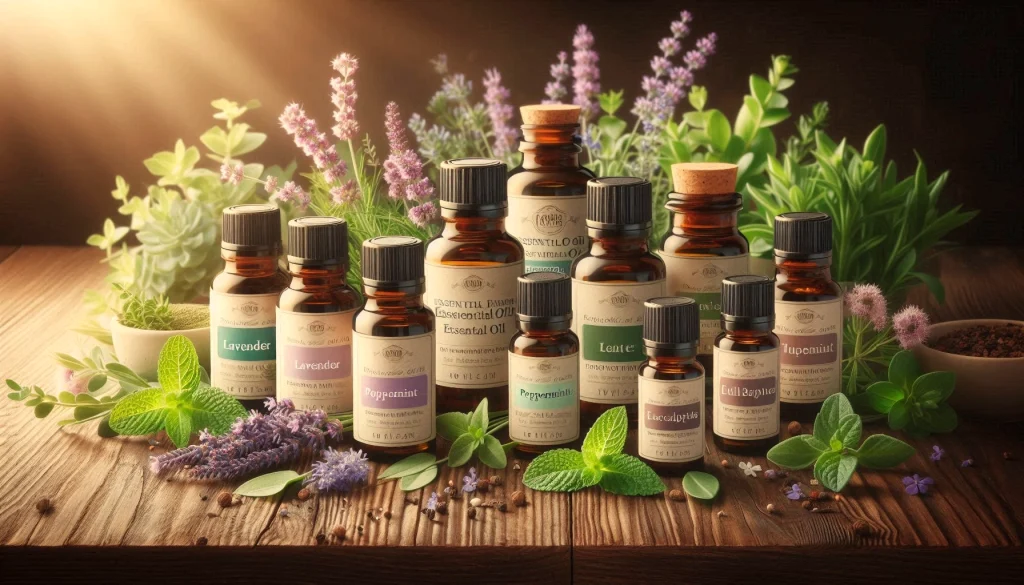
Introduction to Essential Oils
Essential oils are highly concentrated plant extracts that capture the natural aroma and flavour of their source. These oils are obtained through processes such as distillation or cold pressing. Essential oils have been used for thousands of years in various cultures for their medicinal and therapeutic properties. They are commonly used in aromatherapy, a holistic healing treatment that uses natural plant extracts to promote health and well-being.
Medicinal Use of Essential Oils
Essential oils have a wide range of medicinal uses. They can be used to treat various ailments, including:
- Pain Relief: Essential oils like lavender, peppermint, and black pepper are known for their analgesic properties.
- Anti-inflammatory: Oils such as eucalyptus and tea tree oil can reduce inflammation.
- Antimicrobial: Many essential oils have antibacterial, antifungal, and antiviral properties.
- Digestive Health: Oils like ginger and peppermint can aid in digestion and relieve gastrointestinal issues.
- Respiratory Health: Eucalyptus and peppermint oils can help clear respiratory passages and ease breathing.
Aromatherapy
Aromatherapy is the practice of using essential oils for therapeutic benefits. It involves inhaling the aroma of essential oils or applying them to the skin. The benefits of aromatherapy include:
- Stress Reduction: Essential oils like lavender and chamomile can help reduce stress and anxiety.
- Improved Sleep: Oils such as lavender and sandalwood can promote better sleep.
- Enhanced Mood: Citrus oils like orange and lemon can uplift mood and increase energy levels.
- Pain Management: Oils like black pepper and peppermint can help manage pain and discomfort.
- Boosted Immunity: Essential oils like tea tree and eucalyptus can strengthen the immune system.